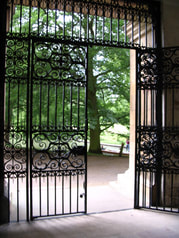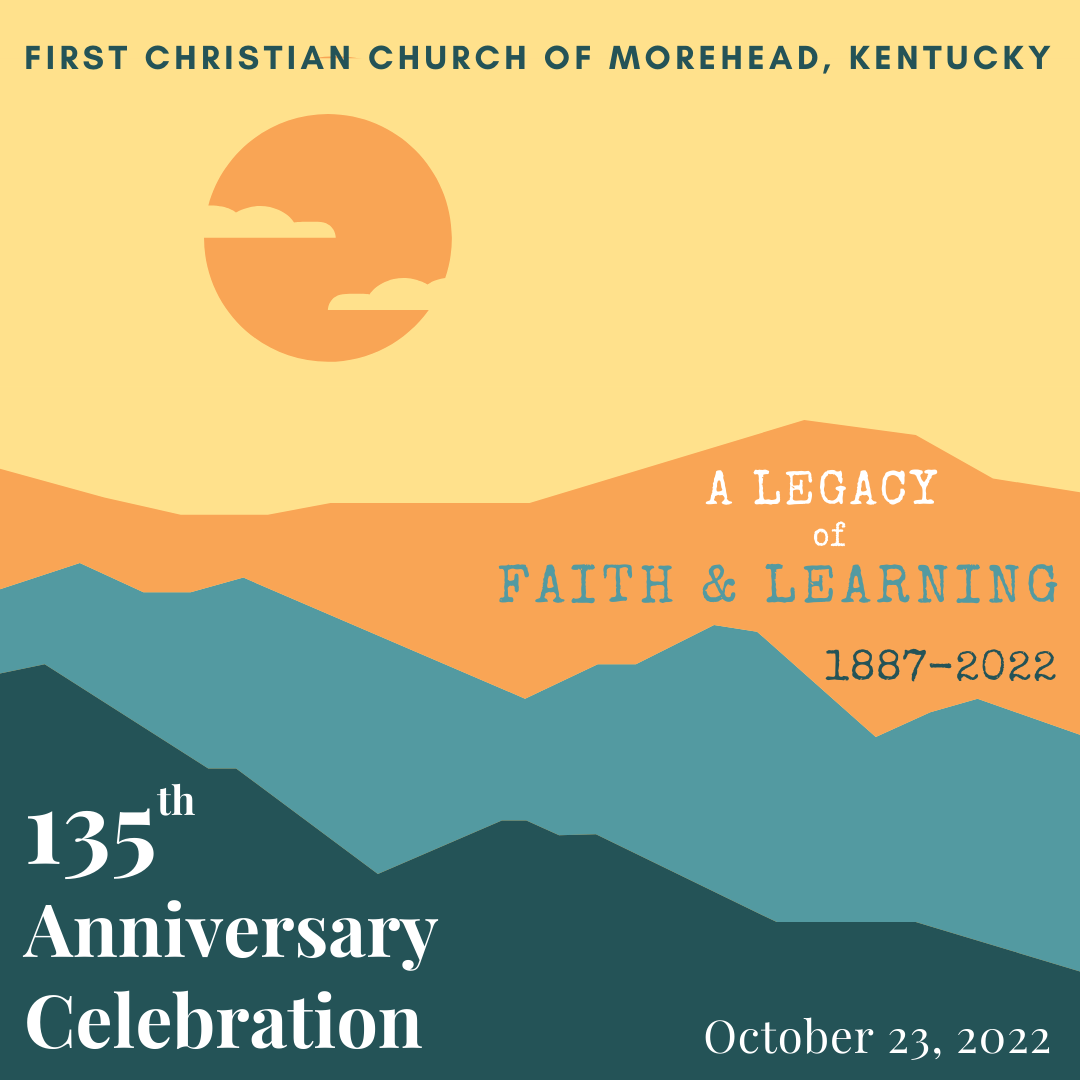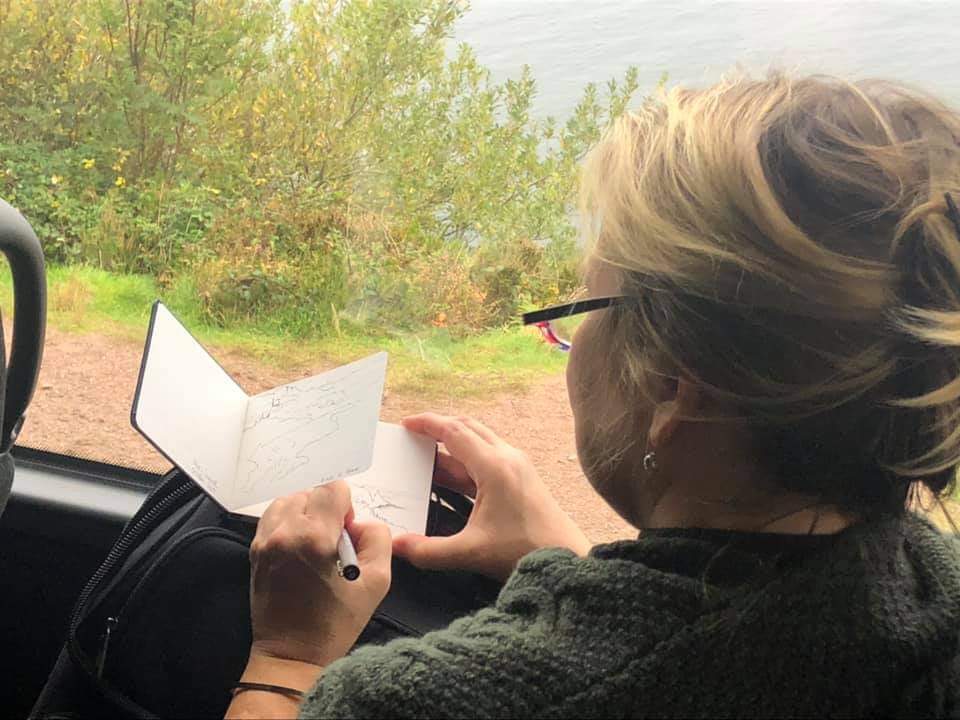 Good where we’ve been, good where we’re going to. Good where we’ve been, good where we’re going to. — sung refrain, unknown author Dear Disciples, ‘Tis the season for end-of-the-year lists and resolution making for the new year to come. Spotify quantified my listening habits, with #SistersinLaw topping my podcast list and Engelbert Humperdinck crooning my most played song (A Man without Love, if you want to know. Thanks to Marvel’s Moon Knight TV series for the ear worm.) Barack Obama has published his popular Spotify music playlist, along with his favorite films and books of 2022. We love lists! There’s a list for most human endeavors: best film lists, top TV shows, biggest political stories, most influential people, and more. The Los Angeles Business Journal publishes a list of lists, a compilation of the lists published during the year. Perhaps it’s a way of closing the books on a previous year. We manage to get the last bits of the year stashed into a stuffed file folder, tucking it away and promising to look at it again soon. All the while we know once the file drawer is closed, time will slip by and the folder moved to the back of our memories. I am a sporadic list maker, returning to the practice when life’s details threaten to become unmanageable. Often lists are boring—the grocery list scribbled on the back of a receipt or a packing list for my suitcase. Sometimes lists are for a future dreaming—creating Pinterest boards of places to travel, restaurants to dine at, hikes to try. There is a poetry form of lists, and the first one I remember reading was Shel Silverstein’s marvelous poem, "Sick." In it little Peggy Ann McKay offers the reasons she cannot go to school that day, reciting an impressive list of her ailments: ..."I have the measles and the mumps, A gash, a rash and purple bumps. My mouth is wet, my throat is dry, I'm going blind in my right eye. My tonsils are as big as rocks, I've counted sixteen chicken pox And there's one more—that's seventeen, And don't you think my face looks green?... Have you made any lists for 2022? —moments of accomplishment, tasks left unfinished, or roads not taken? A compendium of joys or heavy griefs? Are you carrying into the new year a moving box filled with unnecessary regrets or grudges? What can you take with you into 2023 and what will you allow yourself to let go of? My favorite contemporary hymnwriter, John L. Bell, in the song, Take This Moment, uses the list poem form as a prayer to God for new beginnings. You can listen to the song on YouTube. Take this moment, sign and space; take my friends around; Here among us make the place where your love is found. Take the time to call my name; Take the time to mend Who I am and what I've been, all I've failed to tend. Take the tiredness of my days; Take my past regret, Letting your forgiveness touch all I can't forget. Take the little child in me scared of growing old; Help me here to find my worth made in God's own mould. Take my talents, take my skills; Take what's yet to be; Let my life be yours, and yet, let it still be me. —John L. Bell, (Take This Moment) Whatever lists we are carrying from this year to the next, may the grace of God always be our companion on the way.
0 Comments
The founding of Morehead Normal School in 1887 grew out of the Rowan County feud. The State applied militia force to settle the problem, the Baptists held evangelistic meetings, and the Disciples of Christ established a school and a church.
—Morris L. Norfleet, Morehead State University Founding Years It reveals much about the Disciples’ spirit that our response to the chaos from a multi-year violent feud which left more than 21 people dead, destroyed thousands of dollars of property, and terrorized local residents of Rowan County was to send missionaries to found a school and organize a local church. William T. Withers, a prominent Lexington horse breeder, ex-Confederate colonel, and a former slave owner, underwrote the missionary endeavor. A young college graduate Frank Button and his mother Phoebe Button accepted the call from the Kentucky Christian Missionary Convention to come to Morehead. Their work was to establish a school in Morehead and to provide pastoral leadership for the Christian congregation. The early days were difficult. Later Wither’s daughter, Ida W. Harrison related the story that upon his arrival, Button was visiting with a man in town, “and while they were talking, firing began on the street, and they had to take refuge behind an old stone chimney, until the fusillade was over.” The school attracted early opposition from the community, perhaps a distrust of outsiders played a role. In a letter to Button in October 1887, Withers saw the controversy as an opportunity, writing, “Am not surprised at the opposition to your school. It was only what might have been expected—this very opposition will no doubt result in bringing your school before the public & that’s what you want.” Education and faith were bound together in those early years. In the same October letter, Withers expresses his pleasure in hearing of the progress in forming a congregation in Morehead and informs Button that a “nice plated communion service” was being sent from the deacons of the Main Street Christian Church in Lexington for use by the new Morehead congregation. The church, alongside Baptist, Presbyterians, and Methodists soon held its gatherings in the newly erected Union Church building, constructed in 1888 on the site which our church facilities now stand. Disciples’ influence continued in Morehead as the Kentucky Christian Missionary Society oversaw the mission of the Normal School for thirteen years, after which control of the school was transferred to the national Christian Women’s Board of Missions. The work of the school fit in with the larger mission of the Women’s Board of Missions, whose work encompassed educational and missional projects internationally and in the United States. Roy Roberson, minister of FCC Morehead from 1970 to 1984, speaking at the centennial celebration of Morehead State University, reflected on what he called the religious spirit of the time as a reaction to the social upheavals of the era which led to Frank Button’s move to Morehead said, “...this was an explosion that led to a birth of new religious thinking that combine religion with reason, faith with purpose, intellect with a desire to build a better world, the ability to think and apply that thinking to a faith perspective that would do something in the lives of others.” As we celebrate our 135th year as a congregation, once again we find ourselves in a time of uncertainty and upheaval. Rather than be reactionary, may we instead be moved to commit ourselves to a missional vision which faces the future with hope and steely determination. Let this be a time of celebration, a moment to look back, and an opportunity for a reclaiming of our congregational heritage, this rich legacy of faith and learning with which we have been entrusted. History is not a burden on the memory but an illumination of the soul.
-John Dalberg-Acton Dear Disciples, Much of pastoral ministry involves not speaking, but listening. A new minister slowly learns the stories of their congregation, both individual stories and the collective history of that faith community. Listening takes time and intentionality. As relationships deepen, the opportunities for sharing significant and personal experiences grows. A few months ago I shared some of what I’ve been learning about FCC Morehead, gleaned from conversations and practices. I listed the core values I’ve see in this faith community: communion, compassion, education, beauty, Creation, hospitality, community, history, and practicality. It’s an incomplete list, I know. Still I hope we can continue the conversation on these core values. I’d love to see where our lists overlap and what you know of this congregation that I have yet to learn. Let me say a bit more about one of those core values: history. I am mindful of the rich tradition of this congregation, under the direction of Frank C. Button its joint history with the founding of the Morehead Normal School, now Morehead State University. The very foundation of the church building rests upon the ground of its predecessor, the Union Church, which was built at the encouragement Col. John Hargis, founder of Morehead. Those two parts of our congregation’s history reveal the threads of ministry which continue to this day: our ongoing commitment to education and our dedication to ecumenism. It is, borrowing the words of Lord Acton, “an illumination of the soul” of this congregation. An exploration of one’s history also calls us to reflection, and at times repentance. Our ancestors, both personal and corporate, were human beings like us, sometimes inspiring, at other points most fallible. Engaging in history requires much of us, to be willing to face uncomfortable facts and to learn what those parts of our history reveal about ourselves. Our congregation’s history is no exception. The first financial supporter of the founding of the Normal School and of the Christian Church in Morehead was William Temple Withers, a former Confederate general and slaveowner, and also a prominent Lexington philanthropist and supporter within Christian Church circles. His name is included in one of our stained glass windows. History is complicated because human beings are complicated. We are beginning our worship services with an acknowledgement of the land, a public recognition of the stories of this place before us, of the people who lived on this land, loved it, cared for it, and who were forcibly displaced from their lands. That story is part of the history of the American church, too, and of ours as members of the Christian Church (Disciples of Christ). It’s a history which may make us uncomfortable, which challenges the narratives our ancestors told about themselves. Learning about the Doctrine of Discovery, the role that Christian churches played in the forced removal and the intentional erasure of indigenous culture and practices, enables us to tell our own stories with more honesty and humility. And it can change the ways in which we engage in ministry today, as we learn from the mistakes of the past and see how those historic decisions still affect the present day. Our histories are a mix of cherished stories and of regrets. I’m grateful that this congregation is committed to being faithful storytellers who both inspire and who don’t flinch at the painful chapters of the past. How do you understand the role of history in this congregation? In your own life? What lessons are you learning from the past? What stories do you want to know more about? Let’s keep this conversation going. Be well. Be kind. And always be the church where you are. Pastor Nancy Do you know what thinking is?
It’s just a fancy word for changing your mind.” —The Twelfth Doctor In 1938 economic collapse, unrest, and conflicted had altered the shape of global affairs and shaken the foundations of modern theology, the editors of The Christian Century reached out to prominent theologians and church leaders asking the question, “How has your mind changed in the last decade?” The request described a proposed essay series as “a kind of testimony meeting” for “the free exchange of experiences.” The 34 contributors were to respond both intellectually and personally, offering deeply reflective essays that were published by the magazine. Karl Barth, Georgia Harkness, and Reinhold Niebuhr were among those who submitted essays, with Niebuhr confessing he had experienced “’a fairly complete conversion of thought which involved rejection of almost all the liberal theological ideals and ideas” which had been part of his earlier work. It is a question to which the magazine has returned, each decade asking religious thinkers to reflect on the ways in which their understandings have changed. Some essayists profess a constancy to their thought. Others such as Langdon Gilkey saw the changes in process rather than complete, writing, “I prefer, if I may, to say ‘How My Mind Is Changing.’ Instead of having the sensation of motion followed by present rest and clarity…, I am now overwhelmed by the sense of being theologically still in passage.” It is a question worth pondering, how our thinking changes over time. Asking the question of ourselves requires honesty, a fair bit of humility, and vulnerability. Today as the divisions in society seem greater than ever before, admitting to a change in thought demands courage. Our politicians are criticized for changing their positions on issues, sometimes rightly so if those changes are for political expediency. Yet, I would argue the ability to state publicly, “I was wrong. I changed my mind,” reveals a strength of character which our culture sorely lacks. Asking myself the question, opens up many ways in which I’ve shifted my thinking. A newsletter article is too small to describe how much my mind has changed through the years, however, looking back there seem to be two consistent threads when I’ve clearly changed positions. First is the lens of God’s abundant grace which I experience at communion. Moving away from my formative experiences of the Lord’s Supper growing up in a conservative Baptist congregation in which our unworthiness and sinfulness was a primary communion theme, I have been reshaped by an expansive view of God’s radical welcome in the sharing of the Eucharist. Secondly, in those most consequential issues where I have changed, more often than not it has been because I have listened to the stories of others, heard their experiences of pain and injustice. Those stories opened up new ways of understanding. There is much talk of echo chambers and confirmation bias in our culture. It is tempting to stay in our own safe camps and point fingers at those who disagree with us. And yet our God is always doing an new thing, always creating, always at work for transformation. If we are fearful of our current circumstances, asking the question, “how has my mind changed” might be a good place for us to begin. Acknowledging where we’ve been and how we’ve evolved may open up constructive possibilities for our future. As my opening quote reveals, I am a lifelong fan of the British television show, Doctor Who. I’ll close with a bit of wisdom from the thirteenth and current Doctor, who in the 2018 season opener introduced herself saying, “We’re all capable of the most incredible change. We can evolve while still staying true to who we are. We can honour who we’ve been and choose who we want to be next. Now’s your chance! How about it?” Now’s our chance. How about it? Your fellow pilgrim on the way, Pastor Nancy |
AuthorA native of Illinois, Rev. Nancy Gowler lived for 26 years in the Pacific Northwest. She joined the ministry of First Christian Church in Morehead, KY, in July of 2020. Archives
January 2023
Categories
All
|


 RSS Feed
RSS Feed
